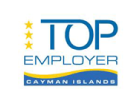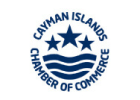Competency Frameworks: A New Framework for HR Success Competency Frameworks: A New Framework for HR Success
by Jakub Jahnl on November 26, 2018
Competency frameworks are the way of the future for HR; is your organisation ready?
Ambitious companies aiming to leverage the advantages of a professional HR infrastructure are discovering in numbers that simple job descriptions for roles filled by prospective employees offer little scope for the kind of analytical treatment that can provide them with an edge in the talent management process.
Without the ability to measure improvements and crucially provide employees with some form of a marker on their own performance, basic job descriptions are being phased out in favour of more sophisticated competency frameworks, which don’t just outline the duties of a particular role but break down the skills needed to succeed in that position.
For employers, the ability to isolate the distinct competencies that are needed to fulfil various functions has meant the whole business of hiring and developing staff has become more scientific, with less left to chance in a more effective employee acquisition process. It’s also a two-way street because from the employee’s perspective there is a greater understanding of what is expected of them and with the right support, a clearer path towards development and potential promotion.
Just consider for a moment what information is contained in the vague basic requirements in a typical job description like being “hard-working” and able to “get on well under pressure” and you can immediately see the absence of any framework for metrics. Competency frameworks on the other hand are based on relevant, measurable and more specific skills and abilities.
It’s fair to say that most businesses in Cayman are somewhat behind the curve in this area, which can be important to an organisation’s future success. While many firms have no such system in place there is an appetite to gain the advantages that a tailored competency framework system can provide.
Having developed a guide to assist companies to implement guidelines for a system of competency frameworks, we have recognised a genuine desire among Cayman’s business community to emulate the kind of best practices prevalent in leading global business centres.
Typically, one might expect to set out some 15 to 20 competencies for each position. Some degree of overlap between different roles is likely, for example in an audit firm, accounting skills would probably feature in most people’s competency frameworks.
Once in place, following evaluation, levels can be used for annual reviews, in addition to a base for more targeted training, which of course helps with employee development.
Furthermore, being able to determine exactly what you need from a prospective candidate at the start of the hiring process is a major plus factor in getting the right person through the door, while new employees will know from day one what is expected of them which is something that can be clearly articulated to them.
Assigning scores or levels to each competency can also help determine what areas the employee needs to work on to achieve career progression. It’s important for the company to be able to say to its staff that we can help you progress in the firm as it helps keep employees motivated and engaged. Within the competency framework, levels would range from basic skill achievements, to average, good or excellent and companies can tailor the levels as they see fit within the firm.
The system can be applied to pretty much any industry, however, while they are not especially common in Cayman at this stage, once the concept is introduced, the interest is there and over the past 18 months we have had great success in getting these initiatives off the ground.
When the HR business starts to become more business orientated, the more you can measure the more you can start to move the needle on the key corporate objectives. As part of an all-around employee hiring and development process, competency frameworks deliver these benefits in addition to setting expectations for both staff and leadership.
Visit https://www.cml.ky/our-services/hr-consulting/ to find out more about how we can help your HR function or speak to Jakub Jahnl at jakub.jahnl@cml.ky.
SHARE THIS ARTICLE
Recent Articles







